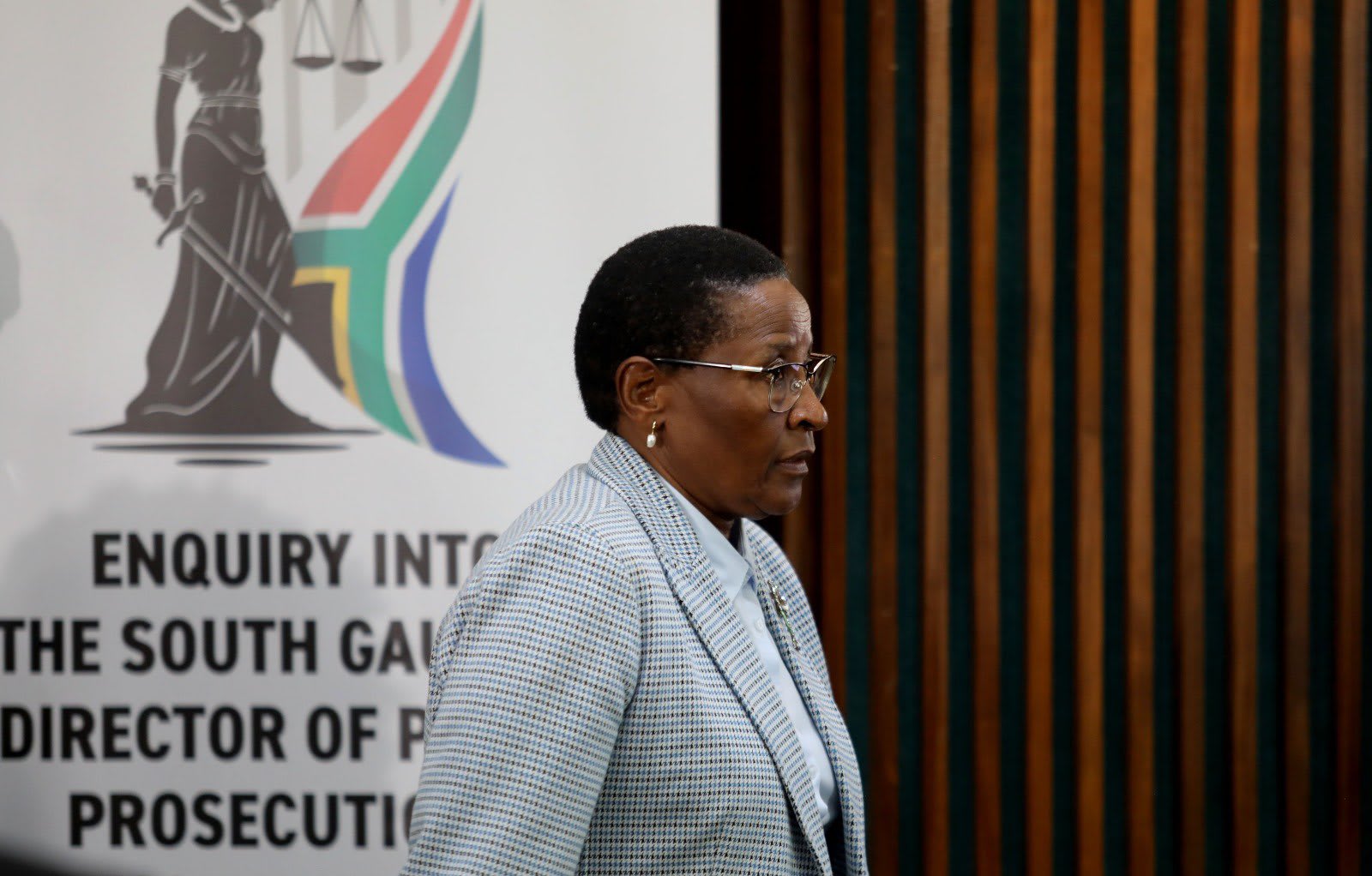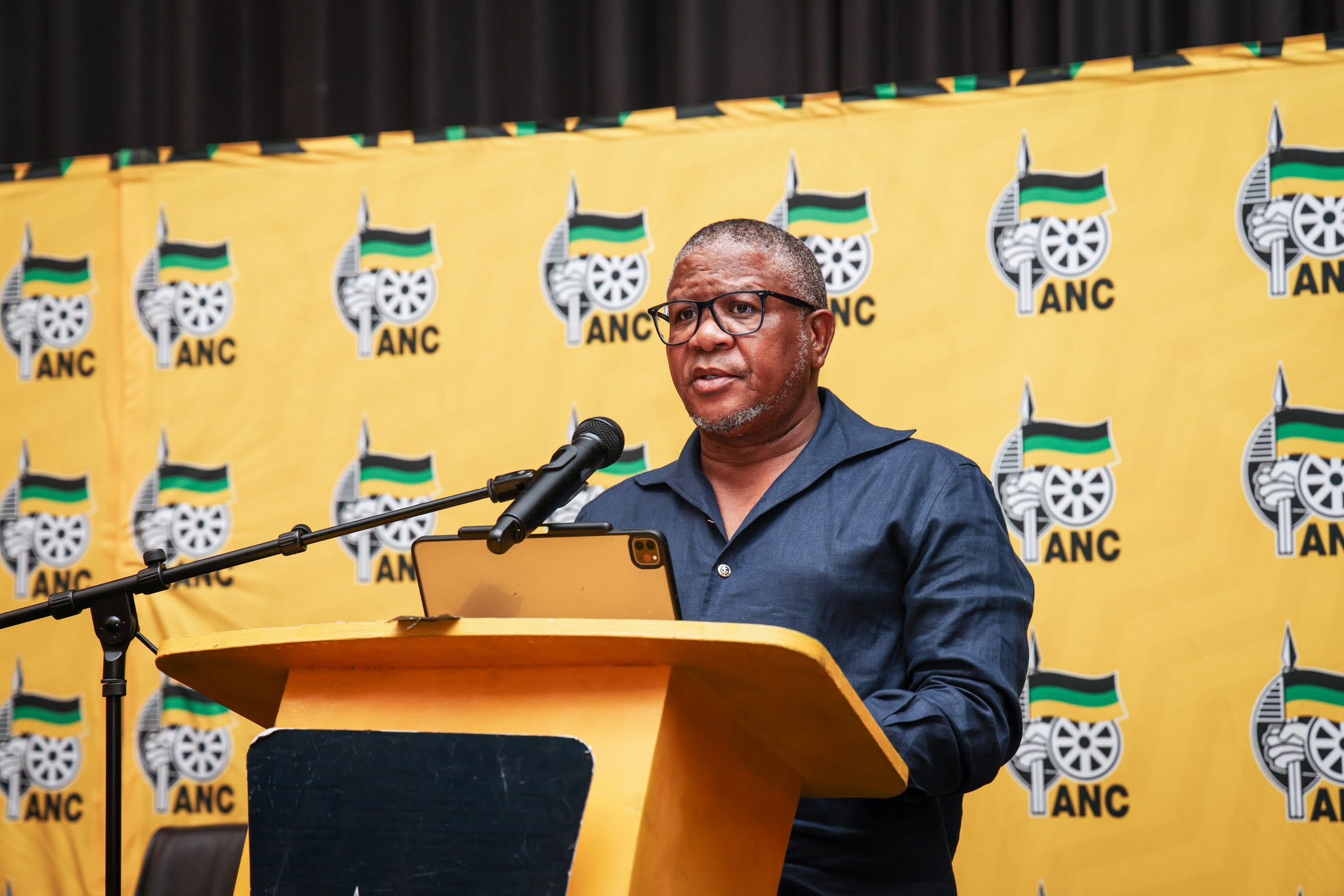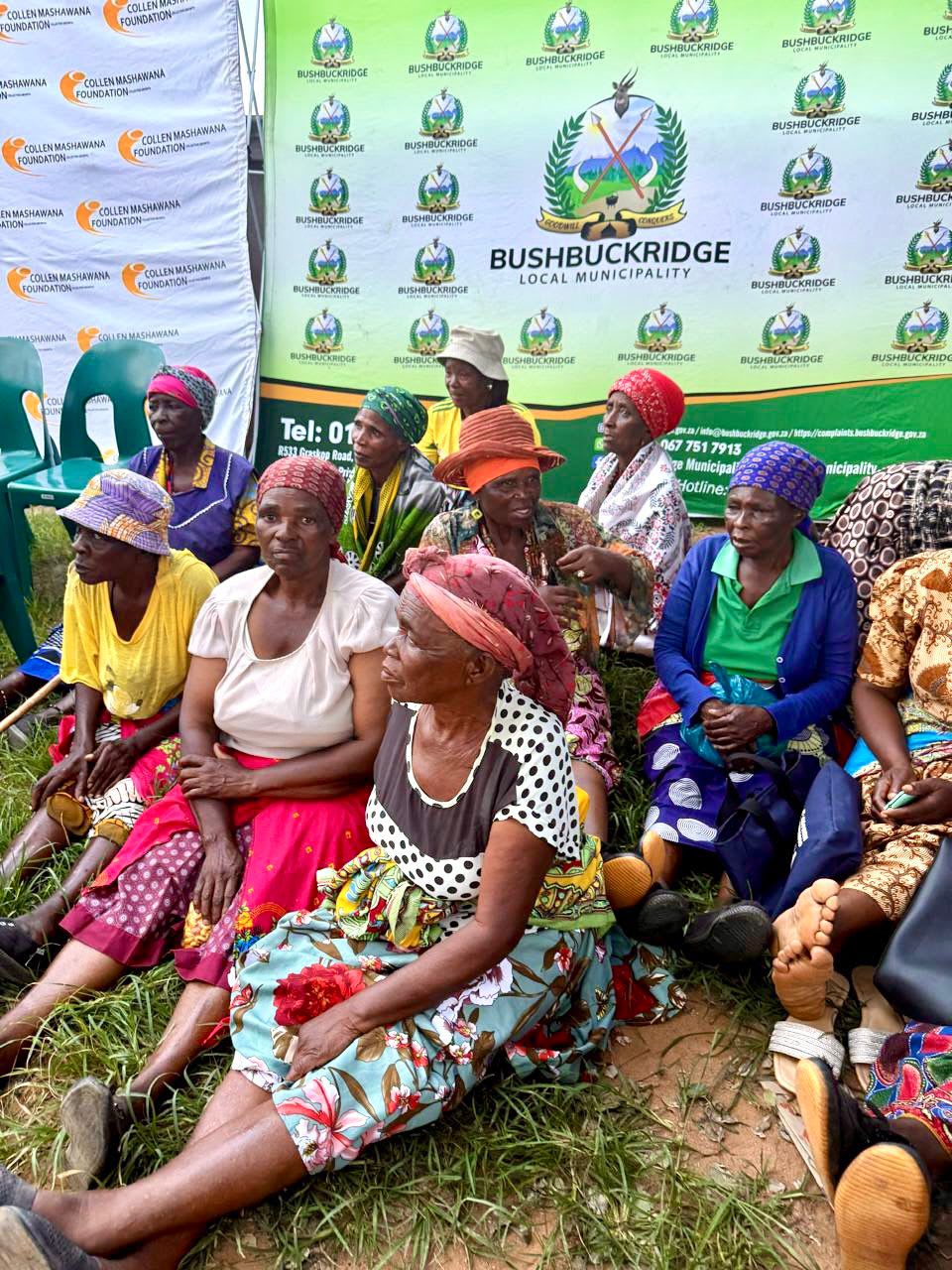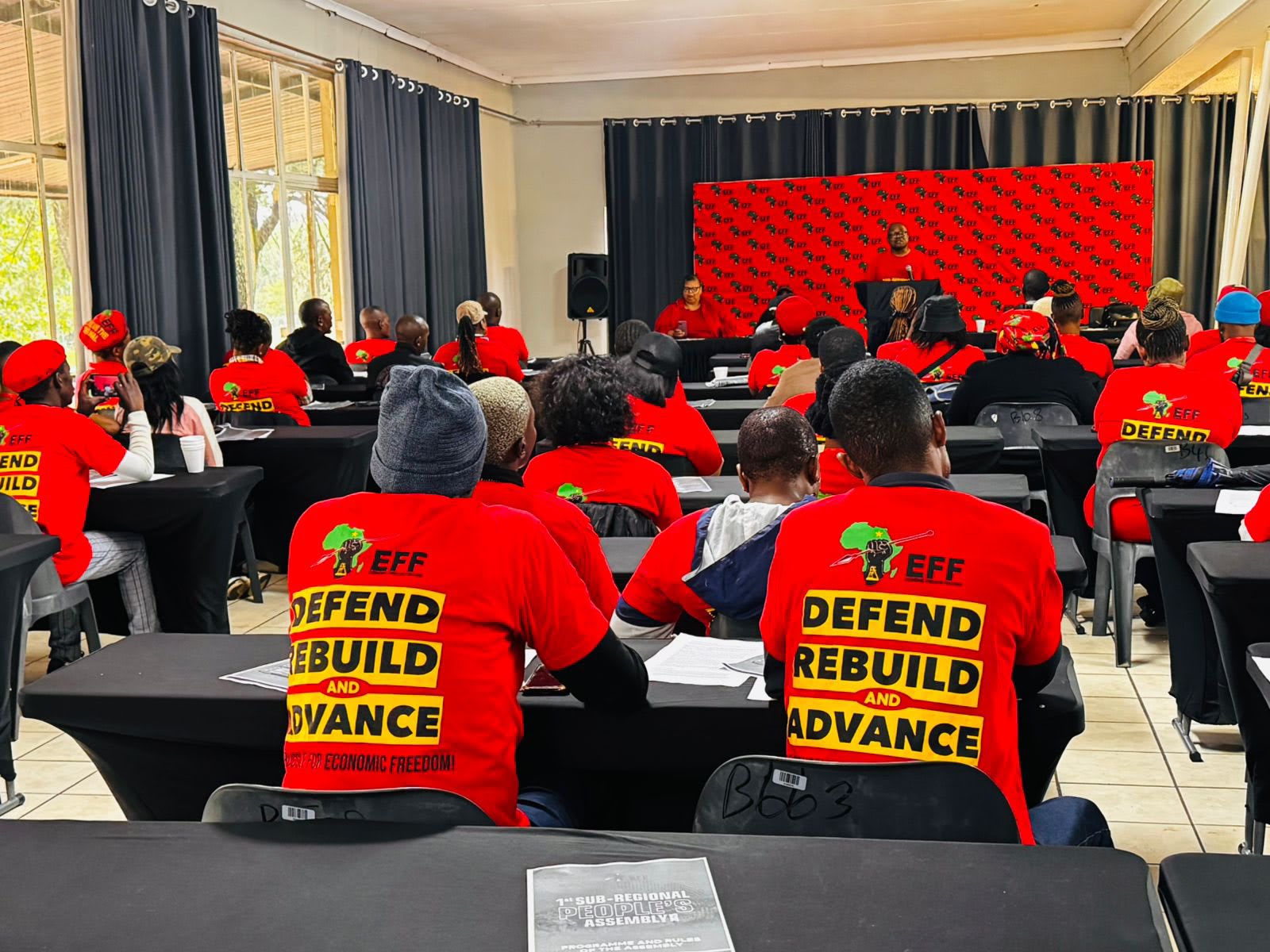GNU
1Min
South Africa
Oct 29, 2025
The EFF condemned Parliament for endorsing Mosotho Moepya and Judge Pillay as IEC commissioners despite concerns raised by Chief Justice Mandisa Maya’s panel about their suitability. EFF national spokesperson Sinawo Thambo said the decision shows the Government of National Unity’s intent to capture the IEC ahead of the 2026 elections.
The Economic Freedom Fighters (EFF) has strongly criticised Parliament for adopting the Portfolio Committee on Home Affairs report on filling vacancies in the Independent Electoral Commission (IEC).
The party said the move, supported by the African National Congress (ANC) and its Government of National Unity (GNU) partners, the Democratic Alliance (DA) and the Inkatha Freedom Party (IFP), undermines the recommendations of the panel led by Chief Justice Mandisa Maya.
In a statement issued on Wednesday, the EFF said the Chief Justice’s panel had raised serious concerns about the competence, temperament, and suitability of Mosotho Moepya and Judge Pillay to serve as commissioners in the IEC. EFF said despite these concerns, Parliament went ahead and endorsed their appointments.
“This decision exposes what it called the real intention of the GNU, which is to capture and control the IEC ahead of the 2026 national elections. The party said the Chief Justice’s report highlighted several issues with both candidates, including poor leadership skills and an inability to respond to weaknesses within the Commission,” EFF national spokesperson Sinawo Thambo said.
He further said “The panel found that Moepya appeared defensive, unwilling to recognise weaknesses within the IEC, and dismissive of proposals to strengthen its systems. It also noted that he lacked empathy and the leadership qualities required to rebuild trust in the institution, especially as voter apathy continues to rise across the country”.
“In the case of Judge Pillay, the panel said she was defensive and reluctant to acknowledge the IEC’s internal challenges during her tenure. The panel also expressed concern about her views on diversity and voter participation,” said Thambo.
The party said it was deeply disturbed that Parliament ignored these findings and instead appointed individuals who were not recommended by the Chief Justice’s panel. It said that more competent candidates, including Abrahams, were overlooked in favour of individuals who had already raised questions about the IEC’s ability to conduct credible elections.
EFF stated that although it has never rejected the outcomes of any election, it has repeatedly raised concerns about the operational failures of the IEC. These include technical faults in voter management devices, challenges in registering new voters, and discrepancies in the capturing of election results. The EFF said it had conducted its own post-election audits and discovered cases where its votes were recorded incorrectly, while votes for the ANC and DA were inflated.
“When we raise these discrepancies, the IEC responds with arrogance and dismissal,” Thambo said.
The party warned that if these issues are not addressed, they could lead to post-election instability and damage public confidence in South Africa’s democracy.
The EFF also accused the ANC of a long-standing pattern of deploying politically aligned individuals to lead the IEC, citing the appointments of Pansy Tlakula, Glen Mashinini, and Janet Love as previous examples. The party said these deployments form part of a strategy to weaken the independence of the Commission and manipulate electoral outcomes in favour of the ruling elite.
According to the EFF, Parliament’s endorsement of the candidates shows that the GNU’s unity is driven by a desire to maintain control over independent institutions rather than uphold democratic principles. It compared the latest move to previous decisions where Parliament dismissed findings of statutory bodies, including the Public Protector’s report on the Nkandla upgrades and the Independent Panel report on the Phala Phala matter led by former Chief Justice Sandile Ngcobo.
The party said it is worrying that the National Assembly is returning to what it called a pattern of constitutional delinquency that was common during the Fifth Administration. The EFF accused Parliament of using its majority power to undermine democratic institutions and the rule of law.
“The National Assembly has once again second guessed the outcomes of statutory bodies. “This is a continuation of majoritarianism that threatens the integrity of institutions meant to protect democracy,” Thambo added.
The EFF said it will explore legal and parliamentary options to challenge what it calls an irrational resolution by the National Assembly. The party said the endorsement of Moepya and Judge Pillay undermines the credibility of the IEC and places the fairness of future elections at risk.
The EFF concluded by rejecting the adoption of the report and calling on all South Africans to remain vigilant against attempts to capture independent democratic institutions. It said it will continue to defend the independence of the IEC and ensure that the 2026 national elections are free, fair, and credible.



















